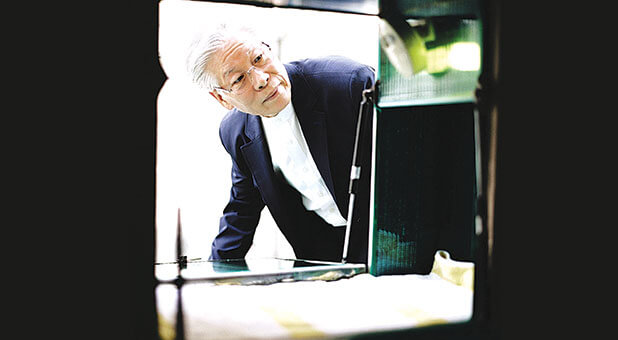A ringing bell can be heard in the late watches of the night through a tiny three-bedroom house in one of the poorest neighborhoods in Seoul, South Korea. Pastor Lee Jong-rak awakes from his sleep as the alarm bell goes off.
Within moments, he and his wife jump out of bed and make their way to a part of their house where a square metal door is built into a wall. He opens the latch to find a tiny baby boy inside, swaddled carefully with a note lying beside him. Lee takes the baby into his arms and rocks him gently, feeling the rush of relief that always comes: This little one will have a life.
Lee, 60, is the creator of the Baby Box, the first and only box in Korea designed to receive abandoned babies who are physically or mentally disabled or just unwanted by their mothers. In Seoul, the largest city in South Korea with a population of more than 10 million, it is not uncommon for such babies to be abandoned on the streets, left to die of hypothermia within hours. Hundreds of unwanted babies are abandoned in just this way in South Korea each year.
Lee’s own son was born with cerebral palsy 27 years ago and forever changed the pastor’s life—he and his wife named their son Eun-man, meaning “full of God’s grace.” Compelled to provide a life-giving alternative for Korean mothers facing a crossroads, Lee built a drop box on the side of his home with a humble sign that reads, “Place to leave babies.” A thick towel covers the bottom of the box, and lights and heating keep the baby comfortable once he or she is placed inside. When that happens, a bell rings, alerting Lee or his wife or their staff associates to move the baby inside the house.
A Crisis Point
Lee admits he didn’t really expect the babies to come in. But come they did. They came in the middle of the night. They came in the middle of the day. Some came with notes. Some came without a word. Only a few mothers spoke to Lee face to face.
Lee shares about one such mother, saying, “She had poison to kill both herself and her baby.”
He responded, “Don’t do that. Come here with your baby.”
Another desperate mother left a heart-wrenching note alongside her infant that read: “My baby! Mom is so sorry. I am so sorry to make this decision. My son! I hope you to meet great parents, and I am very, very sorry. I don’t deserve to say a word. Sorry, sorry, and I love you, my son. Mom loves you more than anything else. I leave you here because I don’t know who your father is. I used to think about something bad, but I guess this box is safer for you. That’s why I decided to leave you here. My son, please forgive me.”
The Baby Box provides a safer solution than the plans that haunt these mothers’ minds. Because the box offers an alternative, they choose life. And Lee, who runs the country’s only orphanage for disabled children out of his home, is content to play his part in the rescue.
A Light Shed Abroad
Now the story of this man and his Baby Box is reaching the world through a 72-minute documentary produced by 22-year-old director Brian Ivie. The documentary, called The Drop Box, won the Best of Festival Jubilee Award and the Sanctity of Life Award at the eighth annual San Antonio Independent Christian Film Festival in February.
Ivie, a student filmmaker at USC who had never before produced a full-length documentary, was stirred to create the film after reading a Los Angeles Times article about Pastor Lee’s mission. After getting in touch with Lee and receiving what he felt was a command by God to tell the pastor’s story, Ivie decided to go to South Korea. What he didn’t know was that the decision to make this film would change his life and transform his faith.
Ivie recalls walking into Lee’s house for the first time. After Lee fed the film crew, he sat them down and said to Ivie, “I don’t want this movie to be about me.”
As a filmmaker, Ivie’s first thought was, “I lost my protagonist!”












































